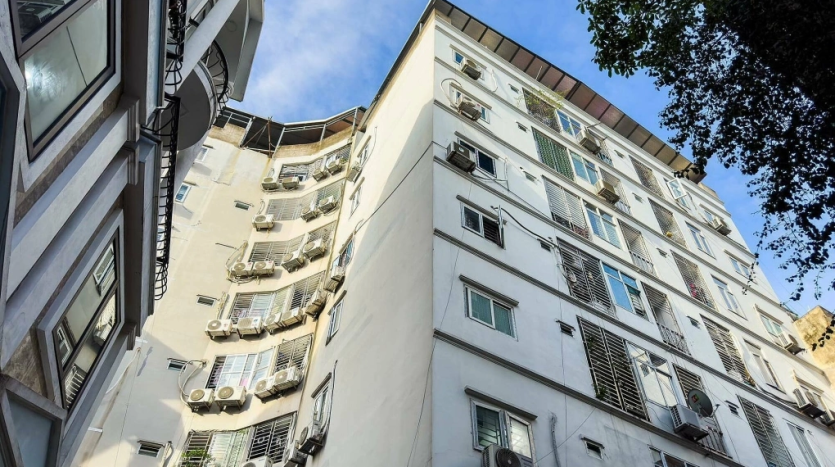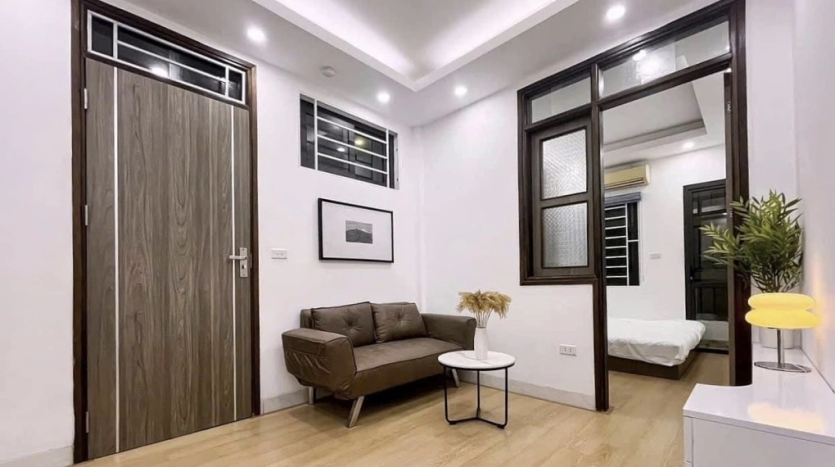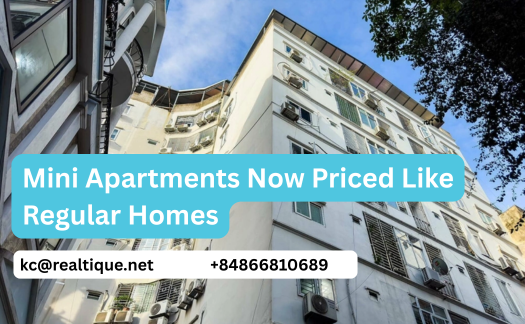Mini Apartments Now Priced Like Regular Homes
Mini apartments in Hanoi’s inner districts are being sold for up to 2 billion VND, rivaling the prices of standard commercial flats despite legal and safety risks.
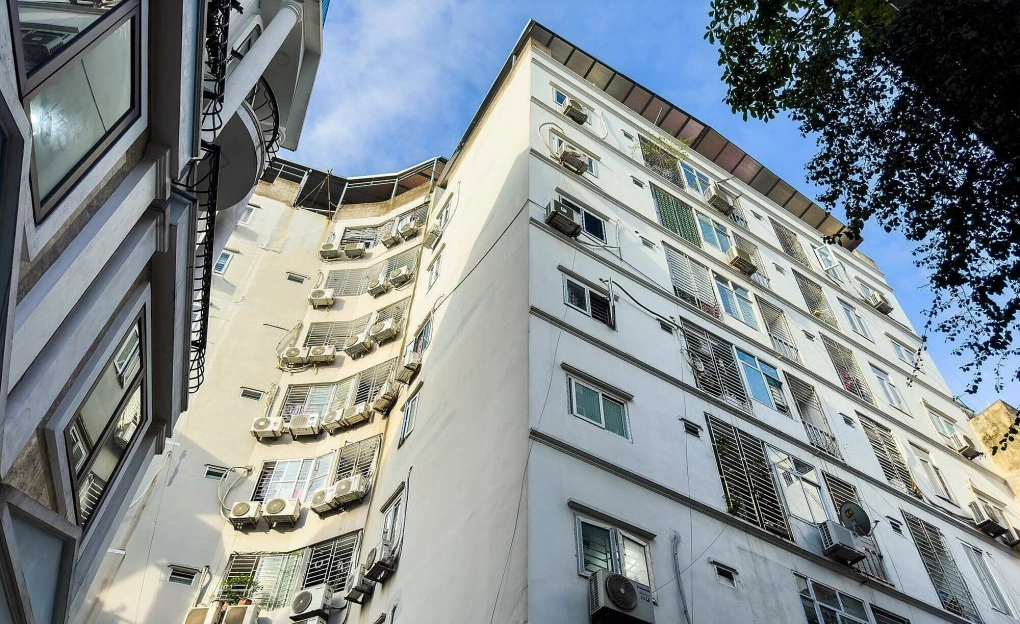
Table of Contents
Mini Apartments in Hanoi Reach Commercial Housing Prices
When Mr. Huy from Thanh Xuan district in Hanoi began his apartment search with a VND 1.5 billion budget, he didn’t expect mini apartments to be just as expensive as standard commercial ones. But after weeks of looking, he was surprised to learn that a 50m² mini flat in his neighborhood was listed for VND 2 billion—roughly VND 42 million per square meter.
The increase in price was attributed to recent upgrades, including a fire prevention system and fully furnished interiors. Despite the improved condition, the deal came with caveats. Buyers had to sign a vi bằng—a non-notarized agreement—with shared ownership rights alongside over 30 others in the same building.
“I’d have to borrow another 500 million, but I can’t even mortgage this type of apartment,” Mr. Huy explained. He later found that most mini flats in Thanh Xuan and surrounding districts were priced between VND 1.7 and 2 billion for 48-52m² units, putting them on par with affordable commercial apartments in areas like Dai Thanh and Linh Dam.
Ms. Thuy, a white-collar worker in Dong Da district, faced a similar situation. After renting a mini apartment for years, she was notified by the landlord that her lease wouldn’t be renewed, as the unit would be sold. When she inquired about the price, she was shocked to hear the asking rate: VND 1.7 billion for a 46m² unit, equating to VND 37 million/m².
With her current rent of VND 7 million per month, she calculated that the price was roughly equivalent to 20 years’ worth of rent. “Buying would prevent rent hikes, but I lose access to loans and legal security. It’s not worth it,” she said, opting to rent elsewhere instead.
Price Surge for Mini Apartments
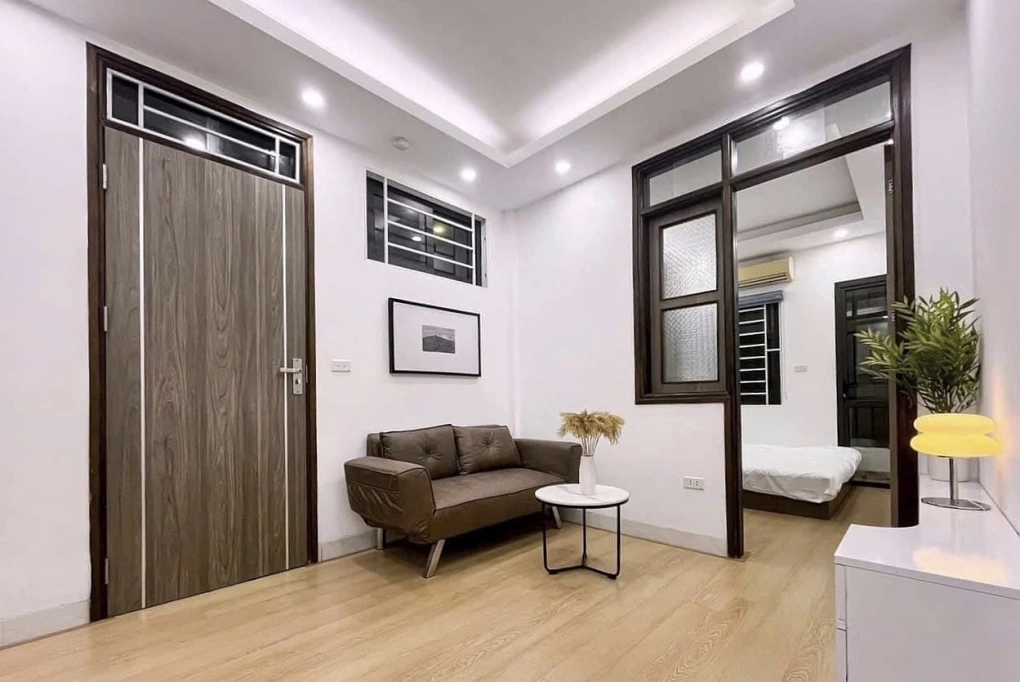
Reports from VnExpress indicate that mini apartment prices in central districts are steadily rising. Units in buildings that have been around for 3–5 years now sell for VND 24–28 million/m². Newly built ones, especially those 46–50m² in size, are often listed at VND 1.5–2 billion. Just a few years ago, mini flats could be purchased for as little as VND 500 million to 1 billion.
For example, in a seven-story building on Bui Xuong Trach Street, Thanh Xuan, a 50m² unit is currently listed for VND 1.8 billion. In Vu Tong Phan, a three-bedroom mini apartment measuring 72m² is on sale for VND 2 billion. These listings often include basic furnishings and are sold via vi bằng contracts, which do not confer legal ownership.
Mr. Pham Duc Toan, CEO of EZ Property, attributes this price surge to a lack of affordable housing and rising costs in other segments. He noted that commercial apartment prices have spiked 40–50% over the past year, leaving buyers with few viable options under VND 3–4 billion.
“As prices climb, more people turn to older or alternative housing options—like mini apartments or social housing. But those come with risks,” he said.
Legal and Financial Risks Abound
The Vietnamese government has recently tightened fire safety standards for mini apartments and rental buildings. Under Prime Ministerial Directive 19, any structure that fails to meet fire prevention standards could face closure after March 30.
Mr. Le Quoc Kien, an independent property consultant, said this has pushed landlords to invest heavily in fire prevention systems. For a 6-floor, 800m² building, installation can cost between VND 700–800 million. Naturally, landlords pass these costs onto buyers and renters.
“That’s why prices for newly built mini apartments are hovering around VND 2 billion,” he explained.
But buyers face serious risks. Without official land-use certificates, they cannot obtain mortgages or legally enforce ownership. Vi bằng agreements only document that a transaction occurred under the witness of a bailiff but offer no protection against future disputes. If the building owner mortgages the entire property or sells the same unit multiple times, the buyer could lose everything.
This scenario has already played out. In a mini apartment complex on Dai Kim Street (Hoang Mai district), 40 families paid VND 700 million to 1.2 billion for flats measuring 33–52m². Despite completing the sale, the landlord mortgaged the land title to finance personal loans, leaving all buyers at risk.
The Push for Affordable Housing
Experts agree that the only long-term solution lies in developing truly affordable housing. At a meeting in February, General Secretary To Lam emphasized the need to establish a National Housing Fund to boost low-income housing development in major cities.
By March, Prime Minister Pham Minh Chinh had directed the Ministry of Finance to finalize the fund’s structure, aimed at mobilizing capital to build social housing.
Until then, many buyers will continue to face a difficult decision: take legal and financial risks with mini apartments, or continue renting while waiting for better options to emerge.
Thinking about investing in Vietnam’s real estate market?
📩 Let Realtique guide you with expert insights, trusted advice, and tailored property options for overseas investors.



